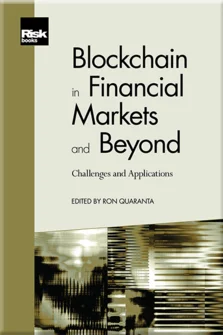Smart Contracts: Definition and Uses
Caitlin Long
Introduction
Blockchain Technology: Emerging Opportunities and Risks
Permissioned Versus Permissionless Blockchain
Cryptocurrencies, Digital Assets and ICOs: Definitions, Valuation and Investment Opportunities
Code is Not Law: Code Can be a Language Used to Create Smart Contracts
Smart Contracts: Definition and Uses
Managing Privacy and Digital Identities with Blockchain Technology
Regulation of Blockchain Technology
Blockchain Use Cases: Reference Data
The Humanitarian Space and Business Opportunity of Blockchain
The Impact on Supply Chain Opportunities
The Promises and Limitations of Blockchain: Taking Stock and Lessons Learned
Blockchain Use Cases in Financial Markets and Beyond
Financial services will someday be mostly provided by software. The transformation has already begun, and from it society will win. Smart contracts will automate and streamline business processes that today are handled by intermediary institutions that introduce cost, latency and risk where these would not otherwise be.
Today, financial services are often bureaucratic, slow, error-prone and still surprisingly paper-based. When you borrowed your mortgage, for example, a file of paper documents changed hands at least three times after the closing at your lawyer’s office before finally landing where it will stay until you pay off your mortgage. When businesses borrow via syndicated loans, banks communicate via a fax machine – something that still happens an estimated 25 million times annually in this market – and each bank separately keys in the data contained on that fax to its database, and then reconciles that data with the other banks. Such duplication and replication are a drag on the economy. The process of fixing these issues with smart contracts and blockchain technology has already begun.
In a decade or two, smart contracts will enable all financial services to be peer
Copyright Infopro Digital Limited. All rights reserved.
As outlined in our terms and conditions, https://www.infopro-digital.com/terms-and-conditions/subscriptions/ (point 2.4), printing is limited to a single copy.
If you would like to purchase additional rights please email info@risk.net
Copyright Infopro Digital Limited. All rights reserved.
You may share this content using our article tools. As outlined in our terms and conditions, https://www.infopro-digital.com/terms-and-conditions/subscriptions/ (clause 2.4), an Authorised User may only make one copy of the materials for their own personal use. You must also comply with the restrictions in clause 2.5.
If you would like to purchase additional rights please email info@risk.net











